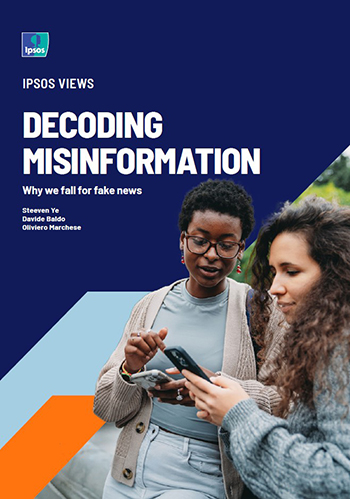Decoding Misinformation: Why we fall for fake news
 Misinformation is a global issue that threatens public health, democracy, and social cohesion. It doesn’t just spread outright lies; it often involves distorted truths and biased narratives that subtly shape public opinion. This can reinforce existing biases, reduce trust in institutions, and influence decision-making.
Misinformation is a global issue that threatens public health, democracy, and social cohesion. It doesn’t just spread outright lies; it often involves distorted truths and biased narratives that subtly shape public opinion. This can reinforce existing biases, reduce trust in institutions, and influence decision-making.
Understanding the factors that influence a person's ability to distinguish between real and fake news is crucial to tackling the misinformation crisis.
Drawing on data from our large-scale study across four countries (France, India, the UK and the US), we explore the psychological and societal factors that make people prone to believing fake news. Our approach uncovers how elements like emotion, analytical thinking, cultural context, and the digital landscape influence our ability to discern fake from real information.
Research shows that people do not misjudge information randomly; rather, their perceptions are shaped by cognitive biases, media consumption habits, and levels of institutional trust.
Addressing misinformation requires a collaborative effort across different sectors, from policymakers and educators to media organisations and individuals. This includes promoting media literacy education, encouraging analytical thinking and fostering responsible information sharing.
By understanding the factors that make people prone to believing fake news, we aim to provide actionable insights to help combat the misinformation crisis and create a more informed and trustworthy information landscape for all.
Key takeaways:
- Cultural context matters: The ability to discern between real and fake news, and the factors influencing it, varies significantly across countries, highlighting the need for tailored, culture-specific strategies to combat misinformation.
- Emotions influence judgement: Emotional response to news headlines can sway our initial judgement of their truthfulness. Fostering awareness of emotional biases and encouraging fact-checking before forming conclusions can help improve truth discernment.
- Critical thinking skills are key: Research shows that exerting cognitive functions, particularly inhibition, improves truth discernment. Educational programmes should incorporate exercises that encourage analytical thinking, source verification, and emotional awareness.



![[Webinar] KEYS: What can we learn from what happened in 2025?](/sites/default/files/styles/list_item_image/public/ct/event/2025-12/keys-webinar-what-happened-in-2025-carousel.webp?itok=1gJKCCxx)